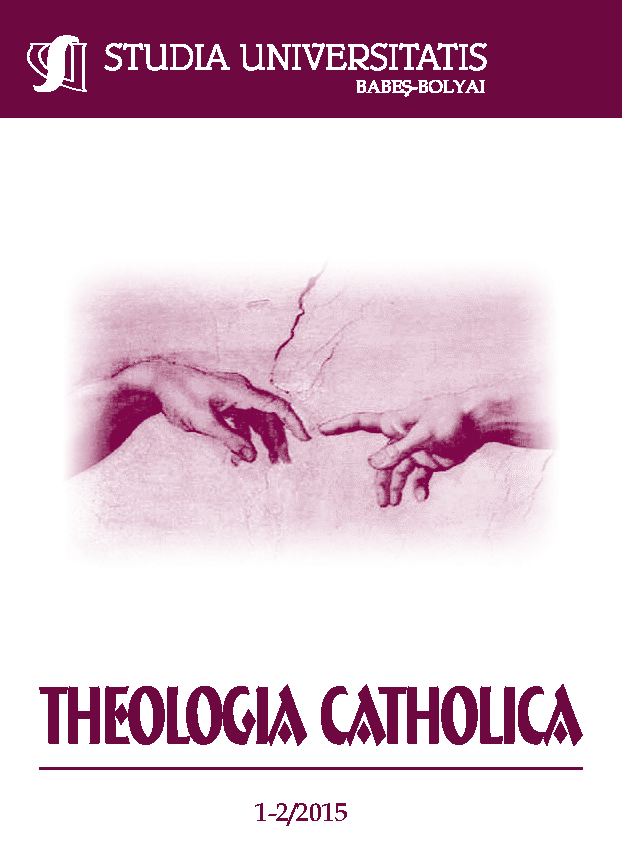Γνώμη – LE RADICI BIBLICHE DI UN CONCETTO ANTROPOLOGICO DI MASSIMO IL CONFESSORE
Keywords:
Maximus Confessor, Anthropology, Christology, gnomic will, γνώμη, monothelism, monoenergism.Abstract
Γνώμη – the biblical roots of an anthropological concept of Maximus the Confessor. The theological and anthropological researches on Saint Maximus Confessor’s texts have always deepened the maximian thinking on a very complex and many-sided topic: the gnomic will, but have never focused on the singular aspect of γνώμη, if not parenthetically. In a monothelitic and monoenergetic controversial context, the maximian speculation on Christ’s double will and double energheiai becomes the starting point of a new anthropological and Christological horizon: what is γνώμη? Has Christ a γνώμη and subsequently a gnomic will? Did sin change the way the human beings feel, think and act? At the same time, did sin corrupt Christ’s way of felling, thinking and acting? Trying to give an answer to these questions, it will take us to the very heart of the inquiry: what is γνώμη? The present article tries to reveal the biblical roots of this fundamental concept of Maximus Confessor’s speculation.
REZUMAT: Γνώμη – rădăcinile biblice ale unui concept antropologic al sf. Maxim Mărturisitorul. De-a lungul timpului, cercetările teologice şi antropologice, în ceea ce priveşte textele sf. Maxim Mărturisitorul, au aprofundat, cu precădere, o problemă complexă, poliedrică, precum cea a voinţei gnomice, analizând în trecere cealaltă problemă, strâns legată de prima, a lui γνώμη. Într-un context monotelist şi monoenergist, cercetările maximiene cu privire la cele două voinţe şi cele două energheia ale lui Hristos constituie punctele de plecare pentru un nou orizont antropologic şi cristologic: ce este γνώμη? Posedă Hristos γνώμη şi în consecinţă o voinţă gnomică? A schimbat în vreun fel păcatul modul de a simţi, de a gândi şi de a acţiona al omului? De asemenea, are vreun impact păcatul asupra modului de a simţi, de a gândi şi de a acţiona a naturii umane a Logosului Întrupat? Încercând să răspundem la aceste întrebări, vom ajunge la rădăcina întrebării: ce este γνώμη? Următorul articol va încerca, aşadar, să elucideze sensul biblic al precedentei întrebări maximiene.
Cuvinte cheie: Maxim Mărturisitorul, antropologie, cristologie, voinţă gnomică, γνώμη, monotelism, monoenergism.
Downloads
Published
How to Cite
Issue
Section
License
Copyright (c) 2015 Studia Universitatis Babeş-Bolyai Theologia Catholica

This work is licensed under a Creative Commons Attribution-NonCommercial-NoDerivatives 4.0 International License.





 ©Studia UBB Theologia Catholica. Published by Babeș-Bolyai University.
©Studia UBB Theologia Catholica. Published by Babeș-Bolyai University.